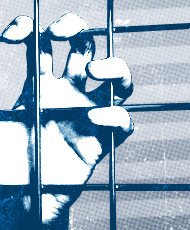
Reading is a crucial avenue through which incarcerated people can stay connected to the outside world, which plays an enormously important role in ensuring that they can transition successfully back into society. Not to mention that reading — and the right to produce and distribute materials to be read — is protected by the First Amendment of the Constitution.
But somehow, officials at one South Carolina jail missed the point. For the past several years, access to most books, magazines, newspapers and other periodicals has been banned at the Berkeley County Detention Center in Moncks Corner, S.C.
Thankfully, that changed today when jail officials there lifted the ban as part of an agreement to settle an ACLU lawsuit. Officials also agreed to stop enforcing a ban on materials containing any level of nudity — which was so broad a jail mailroom officer said it would include magazines containing pictures of Botticelli’s Birth of Venus, a mythological painting from the year 1485 — as well as a ban on materials bound with staples.
As ACLU attorney David Shapiro said today:
We are pleased to know the rights of prisoners will now be protected. Prisoners are not stripped of foundational constitutional rights simply because they are incarcerated, and there is no justification for shutting them off from the outside world.
We filed the lawsuit in 2010 on behalf of Prison Legal News, a monthly journal on prison law, charging that beginning in 2008 copies of the journal and other reading materials sent to detainees at Berkeley County had been returned to sender. The books rejected by the jail included "Protecting Your Health and Safety," which is designed to help prisoners not represented by an attorney and explains the legal rights prisoners have regarding health and safety — including the right to medical care and to be free from inhumane treatment.
Preventing prisoners from reading books, magazines or newspapers is unconstitutional, serves no good purpose, and may actually have a negative effect on public safety. That’s why we celebrate today’s settlement that will once again allow important reading materials into the Berkeley Country Detention Center.
Learn more about prisoners' rights: Sign up for breaking news alerts, follow us on Twitter, and like us on Facebook.

